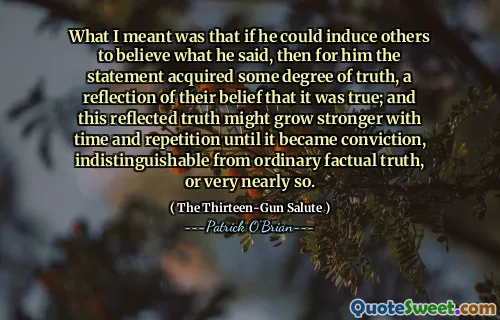
expressed myself badly. What I meant was that if he could induce others to believe what he said, then for him the statement acquired some degree of truth, a reflection of their belief that it was true; and this reflected truth might grow stronger with time and repetition until it became conviction, indistinguishable from ordinary factual truth, or very nearly so.
The author discusses the nature of truth as it is influenced by belief and persuasion. He suggests that if someone can convince others of their statements, those beliefs begin to hold a certain truth for the persuader, creating a perception that soon feels like actual reality. Over time, this perceived truth can solidify into a firm conviction, blurring the lines between subjective beliefs and objective facts.
This exploration of truth hinges on the idea that human perception can significantly alter the understanding of reality. What starts as mere words can evolve through the power of repetition and affirmation, potentially transforming a belief into a widely accepted notion, making it difficult to distinguish it from genuine truth.











